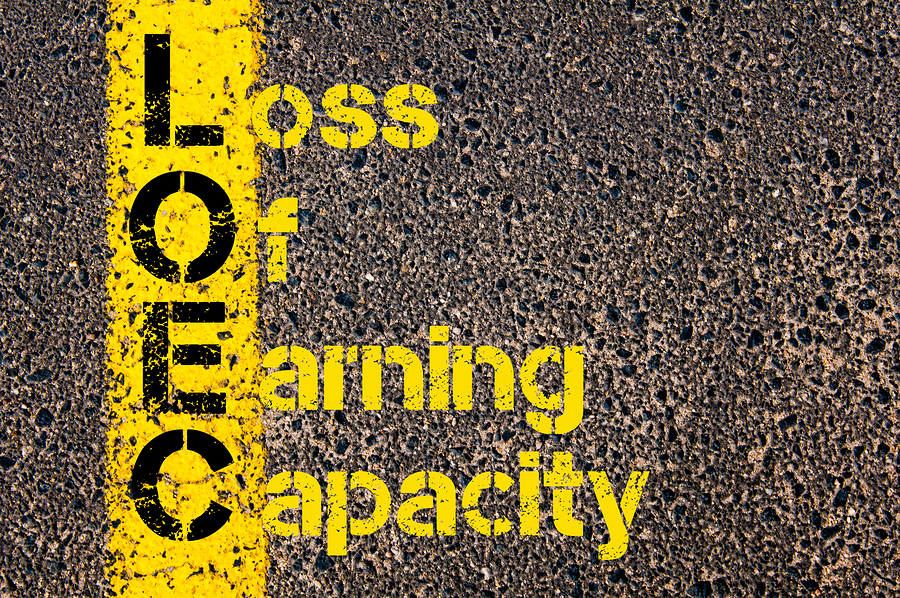 On September 27, 2018, the Benefits Review Board (“BRB”) issued a published Robinson decision in Robinson v. AC First, LLC. Robinson addressed the concept of disability for an injured worker with delayed-expression post traumatic stress disorder (“PTSD”). Robinson will likely become the benchmark for the determination of the existence of a disability following a voluntary resignation from overseas employment, the deprivation of economic choice, and for the consideration of wage earning capacity for workers with PTSD.
On September 27, 2018, the Benefits Review Board (“BRB”) issued a published Robinson decision in Robinson v. AC First, LLC. Robinson addressed the concept of disability for an injured worker with delayed-expression post traumatic stress disorder (“PTSD”). Robinson will likely become the benchmark for the determination of the existence of a disability following a voluntary resignation from overseas employment, the deprivation of economic choice, and for the consideration of wage earning capacity for workers with PTSD.
Brief Factual and Procedural Background:
In Robinson, Claimant worked overseas for four years, from 2009 to March 31, 2014, at which time Claimant resigned. He returned to the United States on April 15, 2014. Then, Claimant began working stateside for Union Pacific on May 5, 2014, where he continues to work.
On August 26, 2015, sixteen months after Claimant returned home, he sought medical treatment for PTSD. Claimant filed a Defense Base Act claim with April 15, 2014 (the last date of employment in Afghanistan) as his date of injury. He sought disability benefits from August 25, 2015 forward.
The administrative law judge (“ALJ”) denied compensation even though he found that Claimant suffered a work-related PTSD injury. The crux of the ALJ’s opinion was that Claimant voluntarily resigned from his employment in Afghanistan for reasons unrelated to his PTSD. Then, the PTSD symptoms did not arise until after Claimant returned to the United States and began working for Union Pacific. Thus, the ALJ held that claimant was not disabled “because of injury” pursuant to the Longshore and Harbor Workers’ Compensation Act’s definition of “disability.”
Statutory Language:
“Disability” means “incapacity because of injury to earn the wages which the employee was receiving at the time of injury in the same or any other employment.” 33 U.S.C. 902(10) (1984).
Analogy to Retirement Caselaw and “Deprivation of Economic Choice”:
Claimant argued that the ALJ erred by relying on his voluntarily leaving his overseas work for employer to deny compensation. The BRB agreed. In doing so, the BRB addressed two recent retirement cases: Moody and Christie.
In Moody, the Fourth Circuit reversed the BRB’s denial of benefits to a voluntary retiree. The retiree had a lost capacity to earn wages, and “economic harm under the Act has been defined as the lost capacity to earn wages, not actual economic loss.” In other words, the law compensates for deprivation of economic choice. See Moody v. Huntington Ingalls, Inc., 879 F.3d 96 (4th Cir. 2018).
In Christie, the Ninth Circuit also reversed the BRB’s denial of benefits to a voluntary retiree. The definition of “disability” contemplates an award of benefits due to the claimant’s inability to work, notwithstanding the claimant’s retirement. See Christie v. Georgia-Pacific Co., 898 F.3d 952 (9th Cir. 2018).
Whereas Moody and Christie involved voluntary retirement, Robinson involved a voluntary resignation from war zone work. But, as the BRB recognized, a voluntary change in job status was not the issue. Instead, the “pertinent inquiry” was “whether claimant established his inability to return to work for employer due to his work-related PTSD.”
If a claimant cannot return to their former work because of an injury, then “he is entitled to compensation for any loss of wage-earning capacity based on the ‘deprivation of economic choice.'” Here, Claimant was disabled under the law because he could not return to his Afghanistan employment. The BRB remanded the claim to the ALJ to address whether claimant established total disability and, if necessary, any remaining contested issues.
Pay Attention to Footnote 5:
Special attention should be paid to footnote 5 of Robinson. There, the BRB wrote:
We reject employer’s contention that claimant’s usual employment is his job at Union Pacific, for whom he worked when his PTSD became manifest, and that claimant, therefore, does not have a loss of wage-earning capacity. Claimant’s usual work is his work with employer, who was the last covered employer to expose claimant to the hazardous conditions that caused his PTSD, and any wage-earning capacity due to the PTSD, therefore, is properly based on his earnings with employer.
That is an exceptionally important footnote that succinctly addresses some of the reasons why DBA claims go to trial. The gist of footnote 5 is:
- “Usual work” was the overseas Afghanistan employment, not the stateside employment.
- “Usual work” was the work at the “last covered employer to expose the claimant to hazardous conditions that caused the PTSD.”
- Claimant’s “wage-earning capacity” was based on his earnings with his Afghanistan employer, not his stateside employer.
Footnote 5 was attached to the following sentence: “If claimant is unable to return to his former work for employer, he is entitled to compensation for any loss of wage-earning capacity based on the ‘deprivation of economic choice’ due to his work-related PTSD.” That means that “former work for employer” is Claimant’s “usual work” in Afghanistan. And the “wage-earning capacity” on which the “deprivation of economic choice” must be based is the wages paid to Claimant during his Afghanistan employment as opposed to his stateside employment.
Robinson v. AC First, LLC, BRB No. 18-0120 (Sept. 27, 2018) (published).
